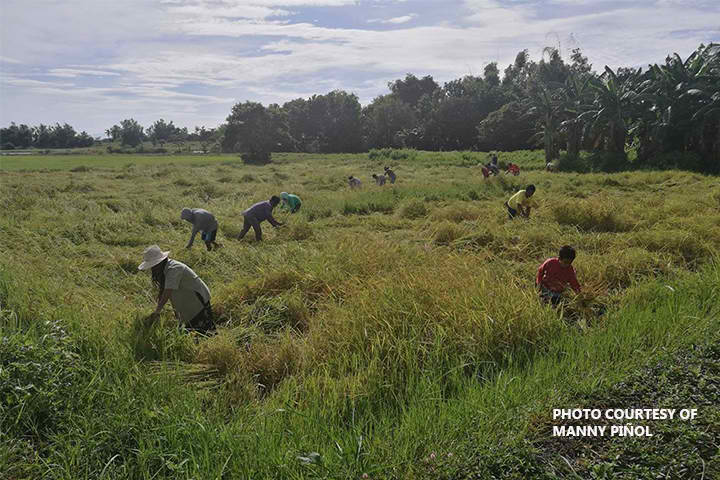DA urges youth to take up farming

Caballero said one of the platforms where the youth could engage in farming is through DA’s Digital Farmers program, where old farmers are introduced to market their products online via social media with the help of their millennial kin. (Photo by Manny Pinol/PNA)
MANILA — The Department of Agriculture (DA) on Wednesday urged the country’s young workforce to pursue farming as a business, as it cited the need to interest the youth on agriculture.
“Young people are attracted to jobs that pay high but without a promise of career growth or skills development. And they often trade this over agriculture or farming that require patience, perseverance. So, there are cases that no one in the family will develop the farm because it is not appealing,” DA Undersecretary Natividad Caballero said in a media interview during the Knowledge Learning Marker & Policy Engagement Summit 2019.
Caballero said one of the platforms where the youth could engage in farming is through DA’s Digital Farmers program, where old farmers are introduced to market their products online via social media with the help of their millennial kin.
“The average age of farmers is 57, we need to bridge that gap through engaging the younger members of the family to be interested in agriculture. Farming is not just a job for one person in the family, everyone needs to help, especially the youth,” Caballero said.
In the forum, farmers and agriculture experts from around the country shared some of their best practices in the field.
Virginia Agcopra, project coordinator of Dynamic Conservation and Sustainable Use of Agrobiodiversity in Traditional Agroecosystems of the Philippines, said that in Ifugao, Mountain Province, the famed Banaue Rice Terraces has been deteriorating because of environmental degradation and unregulated development brought about by urbanization.
“One of the reasons for this is that the local residents, those who are supposed to utilize, maintain, and protect this heritage site, are veering away from farming due to changing values and to pursue more lucrative sources of income,” she said.
Agcopra added that the youth, in particular, are migrating out of the province to seek other well-paying jobs or businesses, while many of those who remain choose to engage in non-agriculture-related professions.
The Dynamic Conservation and Sustainable Use of Agrobiodiversity in Traditional Agroecosystems of the Philippines project aims to address the challenges being faced by the UNESCO recognized landmark by implementing interventions to regain Ifugao youths’ interest in agriculture, enhance farming skills, and enrich their knowledge on the value and importance of agrobiodiversity and its indelible ties to their unique culture‘.
One of the key initiatives of the project, she said, is its collaboration with the Indigenous Peoples Education Center (IPED) of the Department of Education (DepEd) to develop learning guides and modules for Grades 5 and 8 students, most of whom belong to the Tuwali tribe.
These learning guides and modules integrate both agrobiodiversity and Indigenous Knowledge Systems and Practices (IKSPs).
“The goal of this initiative is to stimulate children’s interest in farming and to enhance their knowledge and appreciation of their rich cultural values and traditions, which are slowly disappearing because of modernization, just like the rice terraces,” she said.
The Asian Development Bank-enhanced lesson plans and workbooks are intended to create awareness among the students on the importance of fruit trees and the products derived from them and traditional taming equipment and their uses, among others.
The learning modules, she said, were designed to be easily understood by the target students and to encourage active discussions





















